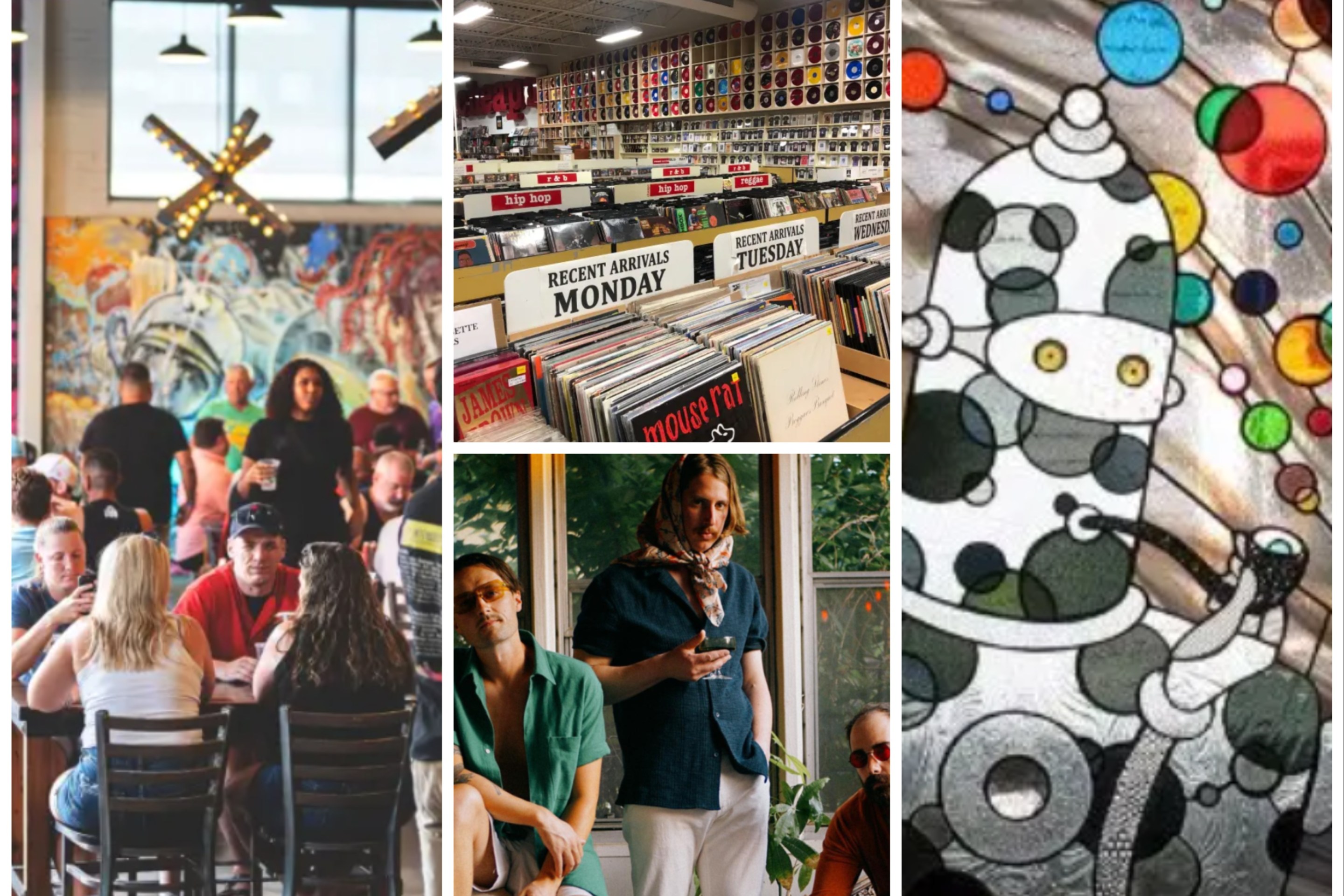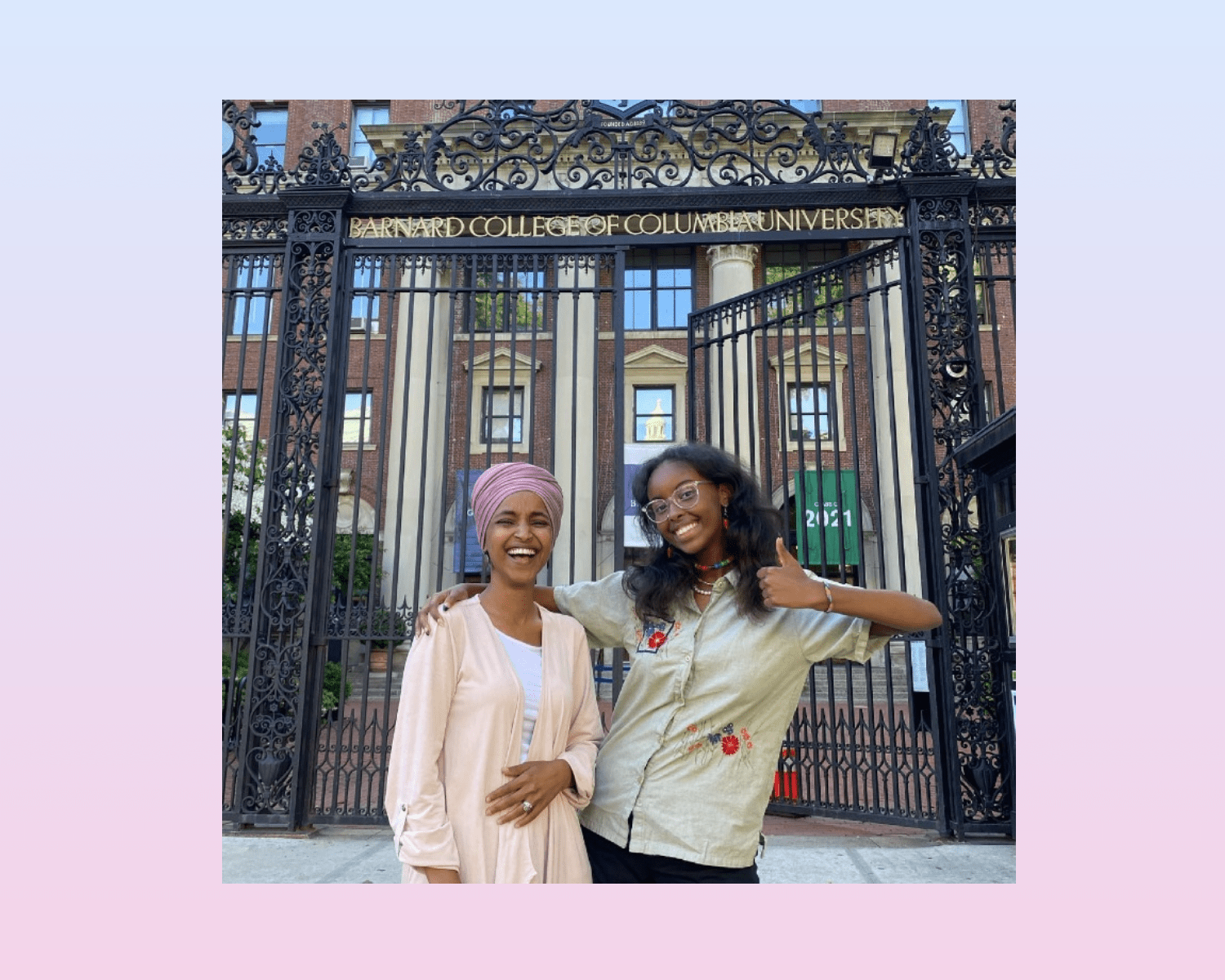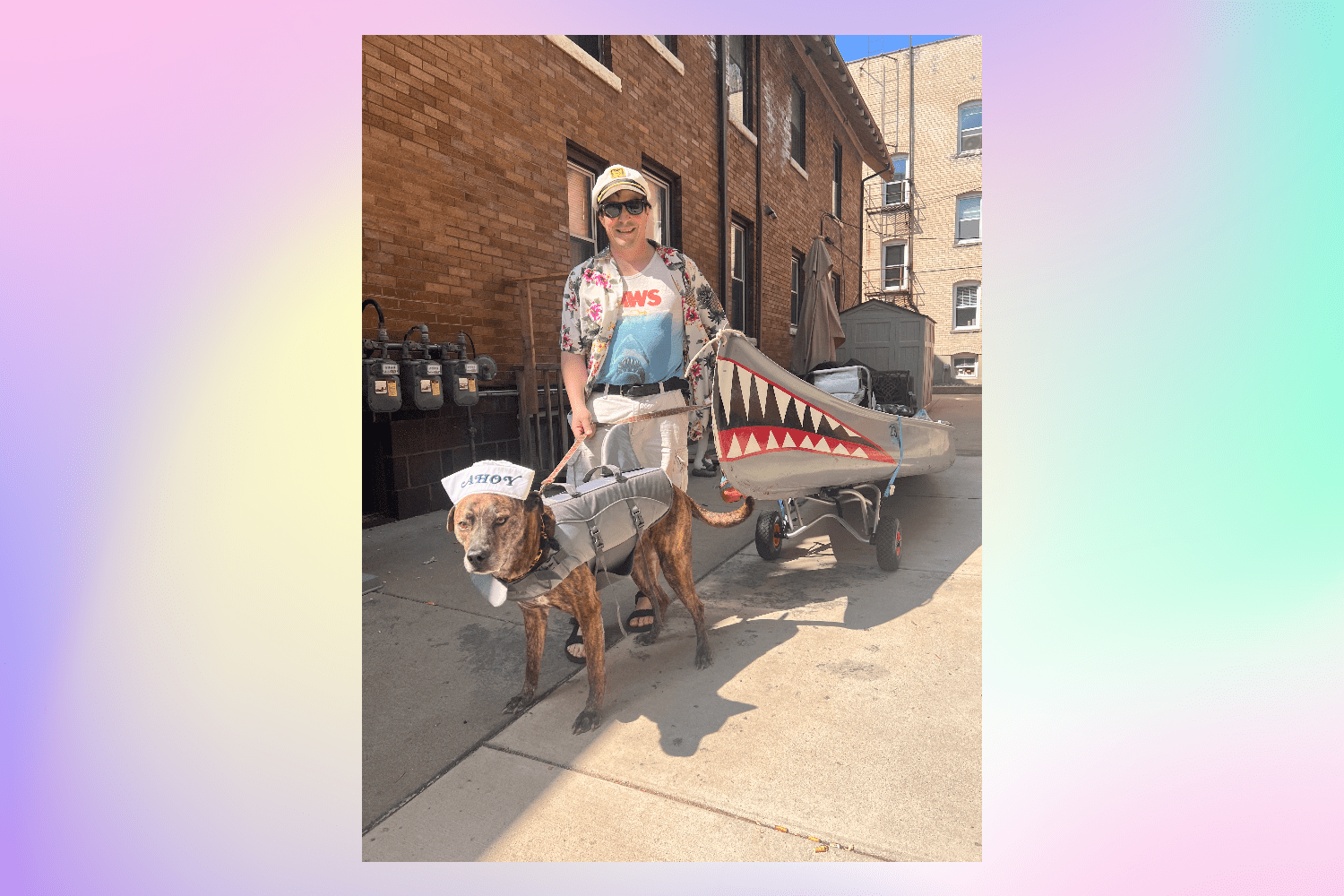Money Journal: 1 Week In the SW ‘Burbs On a $125K Salary
How far do the dollars of a 43-year-old project manager go?
8:59 AM CST on November 28, 2022

Perhaps our most conceptual free stock photo choice yet.
Welcome to Racket’s Money Journal series, where you can snoop on the finances of an anonymous Twin Cities neighbor. Interested in submitting your own? Email jay@racketmn.com for instructions on over-sharing the monetary details of your life! H/T to Refinery29 for pioneering a tremendous concept that we’re excited to localize.
Personal Info
Job: Quality improvement project manager
Age: 43
Neighborhood: Near southwest suburb
Education: Master’s Degree
Salary: $125,100
Partner’s salary: N/A
Dependents: Two (one teen, and one younger kiddo who stays with me 50% of the time)
Estimated net worth: $258,105
Debt
Student loans: $19,000, until this month
House: $136,888
Vehicle: $11,899
Furnace and A/C: $4,534 (replaced together in December 2021 when the furnace failed)
Assets
House: A 1,600-square-foot twin home built in 1979 with a current estimated market value of $265,400; purchased in 2016 for $200,000.
Vehicles: 2018 VW Tiguan purchased in 2020 for $22,600, current value $16,500. Second vehicle (2012 Honda Fit) sold just last week for $900; purchased in 2021 for $2,100 as a potential vehicle for my teenager but… turned out to be a complete money pit so I sold it to my mechanic for parts.
401K & IRA: $131,426
Non-401K savings, crypto: $23,800, plus $5,136 in USD coin held by Coinbase, which just entered bankruptcy proceedings. I will likely not get any of this money back.
Monthly Income
Gross income: $9,646
Monthly Expenses
Mortgage & Insurance: $1,490
Utilities:
- Electric: $39
- Gas: $56
- Water/Sewer: $29.66
- Trash: $19.94
- Phone: $61.05
- Internet: $92
Insurance, per two 2-week pay period:
- Health: $76
- Dental: $12
- HSA: $130
- Short-term Disability: $20
- Life: $28 (Term Life $225,000 policy)
- Auto: $26
Shared kids’ account: $396. This covers our kids’ expenses like clothing, health insurance, sports and activity fees, summer day care, etc. My ex-husband and I keep a spreadsheet to estimate the total costs for a year which we then contribute into a shared checking account proportionally, based on our incomes.
Gas: $104
Groceries: $475
Non-covered medical care: $741 (therapy, supplements, Lyme disease treatment, prescriptions)
Student loan payments: $538 per month until last month, now $0
401K/retirement: $356
Other savings contributions: $642
Monthly subscriptions: $105.78 (Netflix; identity theft protection; YouTube/Twitch/Patreon (scambaiters, indie bands, and Adam Conover); Racket [Editor's note: Hell yeah]; magazines (Car & Driver, Bon Appetit); Google storage
Annual subscriptions: $248 (Amazon Prime, DoorDash Dash Pass)
Money Talk Q&A
Did your family talk about money growing up?
Not regularly, and if we were struggling financially (which I’m sure we were—my dad started and runs his own company, and worked tirelessly while mom raised the four of us) mom ensured we were insulated from that stress. I remember being maybe 10, and we only had one Nintendo controller; she told us if we were frugal we could save up enough for another controller in a couple weeks. That’s my first memory about money.
As I got older and starting working part time in high school, there were a few lessons my dad impressed upon me related to money. The first was to always pay yourself first—take 10% of whatever you make and put it away in savings and don’t touch it. The second lesson was that if you mind the pennies, the dollars will take care of themselves, and I’ve found this to be true in theory as well as in practice. He also taught me never to buy a new car, because as soon as you drive it off the lot you’ve lost money, and he encouraged me to try to not have a car payment—his philosophy is that if you can’t buy a vehicle outright, you can’t afford it. Finally, he has always and for years impressed upon me the importance of saving for retirement, which I’m happy that I started doing as early as college.
I’m not counting on any social security being available for my generation regardless of how much we’ve paid into the system, and I also believe that we won’t ever really retire—both for financial reasons and to maintain a sense of purpose, but also because the gig economy and the pandemic have made it possible to do many jobs from anywhere. So I’m confident I will have at least some income for most of the years I’m living.
Did you worry about money growing up?
Not particularly, but again I suspect my mom did a good job of protecting us from that. I think we were probably middle class or lower middle class. My parents made a knee-jerk reaction on buying a house they loved without knowing much about the neighborhood, but over time it came to be an affluent, highly desirable Chicago suburb with excellent schools, so they really lucked out there. Our house was very small and three of us shared a bedroom growing up. I remember having friends with Victorian mansions and enormous yards with outbuildings, so I had the perception we were living in a very average way but there was always food on the table.
We rarely took vacations or did anything luxurious, although when I was in high school that started to shift. My dad would take me on business trips with him to the East Coast, and I was in the marching band and got to travel to Orlando and London. I started working at 15, at a pharmacy in the town where I grew up, and I remember feeling so great going to Tower Records after every pay day and purchasing a tape or CD. In college I succumbed to the shininess of credit cards; I remember my first one, it was a Discover card that I applied for at a table on the quad where they were giving out free T-shirts. I did struggle with credit card debt as a young adult, it was just too easy to say yeah I want this now and worry about how to pay for it later. I had about $1,200 that followed me around for years until I figured out how interest works, but I now have zero credit card debt and an 800+ credit score.
I was so fortunate that my parents considered paying for college to be part of their responsibility of raising me, and so they covered college expenses as long as I went to a state school. Grad school 10 years later was a different story though and now, neigh on 12 years post-grad, that debt was still over $19,000 and a dark cloud I never thought I’d emerge out from underneath. During the pandemic I made what I thought was a fiscally responsible move and refinanced my government-held loans with a private lender for a lower APR—making me completely ineligible for any loan forgiveness that’s currently being talked about. I’d also worked for a NFP for a decade, which was another way I could have erased that debt if I’d just left my damn government loans alone. Recently, in consulting with my current IRA account advisor (a national, well-trusted institution) I was advised I could take money out of my IRA to pay off school loans and avoid the 10% early distribution penalty, and so I did that with zero hesitation—the prospect of eliminating the school debt was such a huge draw. Unfortunately, after chatting with my tax guy it turns out you actually can’t do that; you can use IRA funds for “school expenses” that are incurred this tax year, but not for loans. So… I’ll get to pay $7,000 in taxes and penalties come tax season, all for the privilege of having no more student loan debt. Oof.
At what age did you become financially independent?
By the time I was in college I was always working at least one job, sometimes multiple jobs at a time, which turned out to serve me well because my first real job after graduation was teaching general music and junior high band in a very rural school district (which paid about as well as you can imagine), so I needed a second job to make ends meet. My parents paid for tuition and books while I was in college, and may have given me a monthly stipend, but I managed all my own finances and paid rent and all expenses myself from the time I left home at 18. As an adult now, my dad has always been willing to provide financial support, and to this day still sneaks cash into my pocket when I leave (my parents still live in that Chicago suburb; my kids and I go down to see them a few times a year).
I’ve suffered from poor mental health since I was a teenager, but this went undiagnosed and untreated until my second daughter was born about a decade ago. Since then I’ve been hospitalized on numerous occasions, and suffer from major depressive disorder that doesn’t respond to medication. Depressive episodes can last from a few months to two years, causing me to be on short- and then long-term disability, and I’ve lost two high-paying professional jobs because of this. During the pandemic I suffered another episode, and to supplement my disability payments (which were 60% of my salary) my dad added me to the payroll of his company, which I continue to receive $766 a week from. I had done some consulting work for him in the past, but this money is completely a gift, and given in anticipation of having to go on social security disability—the monthly benefit for which is, I believe, based on a lookback of your last 10 quarters of earnings.
At a crossroads this summer between going on SSDI and attempting to go back to work, a treatment I was undergoing gave me some relief from the depression symptoms and so I decided to go back to work and started a new job in August. My dad and I have not had any discussion about when his supplemental payments will end, but I anticipate they will cease at any time and am prepared for that.
How did you learn how to budget your life?
This was modeled well for me by having fiscally responsible parents, and I’ve always had an odd/vague feeling of satisfaction when paying a bill either online or through the mail. I did take a course in high school that dealt with personal finances, but being taught how to balance a checkbook before I had a checking account of my own was lost on me. For the amount of love I have for spreadsheets and data in my professional life my philosophy of managing money has always been a bit lax—I basically just make sure I’ve got more cash in the bank each month than I spend or intend to spend, and I’ve always been excellent at estimating.
When I was in my 20s and early 30s I’d make a decision about discretionary spending based on how I "felt" about my account balance, and then doing a quick Fermi estimate on if I’d have enough to make ends meet. Running a household with two small children did cause me to lean on my project management skills, and by my mid-30s I kept a monthly budget. A great influence on me were suggestions from James Altucher (from whom I also learned about Vipassana meditation, another great influence in my life) that I came across around 2015, in an article he’d penned about small financial self-care steps to take. He advised creating a budget, and then making bills, spending, and expenses visible and tracking them as often as weekly; he encouraged prioritizing debts, minimizing credit accounts, cancelling unnecessary subscriptions [Editor's note: Racket is necessary, just think about how much you're enjoying this Money Journal], saving more, and automating finances as much as possible to avoid having to think about them as much. All of these helped me feel in control of my daily finances.
Have you ever received inherited income, major financial gifts, or large insurance payouts?
I received a $14,000 gift from my parents in 2016 to purchase my current home, after my divorce. A bit of context here: My spouse of a decade and I had reached an impasse after a year of counseling, and because I chose to end my marriage my parents basically disowned me because they’re angry and conservative (my husband “wasn’t abusive so what’s the problem?”). My parents have always been very financially supportive and this gift was tacitly given as a reparation of sorts, also given with the understanding that if my siblings ever need similar support in the future I will provide it—an agreement and responsibility I willingly accept. The gift felt like a very begrudging acceptance of my single parenthood, and even more like they did it so their granddaughters could live in a real house instead of the crummy rental I had.
In 2020 I also received an insurance payout of $7,400 after a legitimately trash human being in my life stole my wedding jewelry, stereo, and other valuables from my home.
Do you worry about money now?
I’m incredibly fortunate that I don’t worry about money on a daily basis, and that is 100% due to the additional support of my parents. I’ve been on long-term disability three times in the past decade; I know how to live frugally and below my means, and I know what it’s like to have to make ends meet while being critically ill and on a reduced salary. Does part of me feel like a failure because I’m 43 and still accepting help from my parents? Absolutely. But I also recognize that thinking we’re superhuman adults who have to single-handedly raise kids, have successful careers, and run impeccable households, is an unreasonably sky-high expectation and a completely modern invention. Humans are pack animals, and we need our families and communities for survival in so many ways.
Statistically speaking I’m likely to die about 10 years earlier than my peers because of my mental illness, so although I contribute to a retirement plan I don’t anticipate needing it entirely. My goal is to have enough assets to cover my debts by the time I kick the bucket so my family isn’t saddled with debt, and my kids can inherit whatever wealth I possess at that time. This realization has also shifted my focus toward spending money on experiences instead of things. And while I’m still around I work hard to ensure I’m helping my kids develop the wisdom, empathy, critical thinking skills, and compassion they’ll need to solve the complex problems my generation is creating for them.
How much do you think a person or household needs to earn to live comfortably in the Twin Cities?
There are so many variables to consider to answer this question, but it primarily depends upon how many people are in the household: How many of those people are minors? How many of them earn or receive income? Where that household is located? And whether you rent or own your home? In my neck of the woods, if you’re a single parent with two kiddos you really need at least $100K of income annually (plus support from the other parent) and that’s cutting it close. Probably $125K to be "comfortable." Add $20K if you rent, and $25K for each additional adult.
Day 1
11:32 a.m.: Door Dash for Panera. Smoothies for my daughter and her dad, who spent the morning in the ER. $17.62.
6:35 p.m.: Door Dash for Mugshots. Came down with a wicked fever last night and can’t get out of bed to cook; ordered a sandwich, a scone, and some coffee. $24.93.
Total: $42.55
Day 2
11:30 a.m.: Door Dash for People’s Organic. Still running a temp of 102 and can’t fix anything for myself to eat, ordered French toast and grapefruit, $19.38.
8:42 p.m.: Door Dash for Cheesecake Factory. The sickest I’ve been in years, I decide to “splurge” on a restaurant that’s more than three miles away, ordering avocado eggrolls and a side of Mexican street corn; I was hardly able to eat half of this before needing to go back to bed. I also feel there is something absolutely depraved about food showing up at your door without your needing to expend any energy making it, but I’m setting that modern guilt aside right now. $31.74.
Total: $51.12
Day 3
2:25 p.m.: Door Dash for Walgreens. I don’t know why it’s taken me so long to realize I can take something OTC to feel better; finally ordered some Epsom salt, Gatorade, and NyQuil. While comparing NyQuil prices in a febrile stupor I accidentally put two bottles into my cart; wasn’t planning on spending $20 on NyQuil, honest. $37.45.
6:30 p.m.: Door Dash for Shake Shack. Splurged again on a Far Far Away restaurant and ordered a shake and fries. I am definitely ill, as I regularly avoid all added sugar. $17.89.
Total: $55.34
Day 4
1:14 p.m.: Lawn care: final mowing of the season and leaf cleanup. $322.
4:45 p.m.: Door Dash for Naf Naf Grill. Falafel with a side of pita and baba ganoush. $17.52.
Total: $339.52
Day 5
9:53 a.m.: Charitable donation. Finally making it through my mail after being stuck in bed so long; wrote a check to Second Harvest Heartland. $100.
9:59 a.m.: Received a check from Nationwide reimbursing me for the tow truck I needed for the aforementioned junker Honda Fit. +$143.60.
2:39 p.m.: Door Dash for Patrick’s Bakery. Noticing I’m averaging 1.5 meals per day, decided a calorie-dense quiche was the most efficient way to get some food in me. Saved the side salad and soup for a later meal. $29.21.
3:58 p.m.: Mark’s Marine Pharmacy. I’ve been trying for many weeks to get my insurance company to cover a drug to lower my A1C (I was recently diagnosed as prediabetic). Unfortunately, Medica and MA have different formularies so there isn’t a drug that’s a once-a-week injection that both insurances will pay for. My doctor tried three different drugs and all three prior authorizations were denied. Frustrated with the system and my crap insurance coverage, I had my doc fax the prescription to a pharmacy in Canada and will just bend over and pay out of pocket for this. Hopefully it works and I won’t need to be on it for more than six months. $335.80.
5:02 p.m.: Napa Auto Parts. As German engines of a certain age do, mine is complaining that it needs more oil. One quart of 0w20. $12.14.
5:10 p.m.: Lotus Leaf. picked up my daughter from her dad’s and have nothing in the house to make for dinner, so grabbed Thai for us on the way home (chicken potstickers, fried tofu, and a Thai iced tea). $23.64.
6:48 p.m.: Amazon. Rented Back to the Future; we had tickets to see this tonight at the Science Museum, but I was too sick to drive so we rented it instead. $2.14.
Total: $359.33
Day 6
11:13 a.m.: Shipt (Target). Barely back in the land of the living after having what I suspect was influenza A, and with no food on-hand in the house, I ordered groceries so there’s at least something for the next several days while my kid is with me. $83.11.
1:20 p.m.: Dentist. Had a sensitivity treatment applied to a tooth that had been bothering me. Since I have embarrassingly bad insurance coverage, they wanted me to pay up front as my plan likely won’t cover it. $64.
4:50 p.m.: Amazon. A metronome for my kiddo who’s studying piano and wants to play everything supersuperfastallthetime. $16.33
Total: $163.44
Day 7
8:28 a.m.: Uncommon Goods. Mondegreen coasters for a friend’s birthday next week, plus two Christmas gifts (necklace, molecular gastronomy kit) for family to make the shipping cost worthwhile. $162.32.
8:56 a.m.: Costco. Three quarters of a tank of gas. $34.63.
9:16 a.m.: Aldi. Juice boxes, feta cheese, mandarin oranges, protein bars, and glittery pine cones (because, glittery pine cones). $24.66.
9:53 a.m.: Costco. School lunch items (applesauce, fruit bars, cheese & nut snack trays). $42.77.
10:10 a.m.: Lunds. Orzo and kalamata olives. $6.38.
1:31 p.m.: Target run. Just realized I missed my best friend’s birthday this week while I was sick, which I usually make a pumpkin pie for. Can of pumpkin and evaporated milk. $4.38.
Total: $232.37
Weekly total: $1,243.67
Read More:
Stay in touch
Sign up for our free newsletter
More from Racket
We Come to This Friday Open Thread to Talk About Movies
Hey Racket readers! It's your turn to talk about whatever you want.
Eat and Drink for Cheap at These 25 Twin Cities Service Industry Nights
Discounted tallboys and THC beverages, $3 shots, bottomless guacamole, and more killer deals for hospitality workers.
Freeloader Friday: 80 Free Things To Do This Weekend
Record Store Day concerts, 420 parties, clothing swaps, and group bike rides.
Barnard College Demonstrates Commitment to Free Expression by Suspending Isra Hirsi for Protesting
Plus school district drama, another union Starbucks, and Lake Chipotle 2.0 in today's Flyover news roundup.
Meet David and Goliath: Best Friends, Minneapolis Sidewalk Celebrities
Cities thrive on characters, and these matching buddies are getting noticed all around town.




